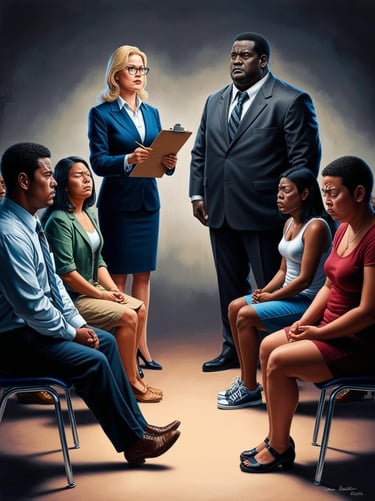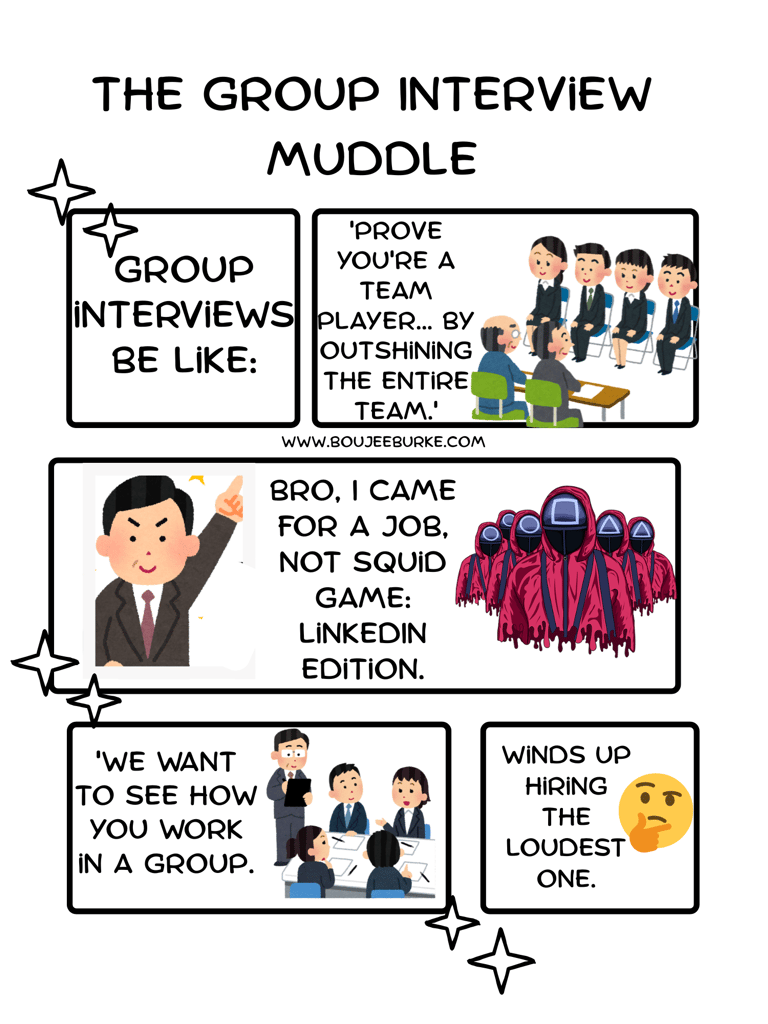And it gets worse. There's a quietly circulating belief (and a few anecdotes that hint at its legitimacy) that some managers treat group interviews as amusement, even placing informal bets on who will shine or bomb spectacularly. While hard to prove, the mere plausibility speaks volumes about the power imbalance and lack of professionalism embedded in this practice.
Pressure Cooker for the Desperate
The job market is already a soul-sucking landscape of ghosted applications, vague job descriptions, and rejection silence. Add to that the psychological strain of being told—on the spot—to essentially duel with others for the same position, and you have a system designed to break rather than build. It’s not just rude; it’s dehumanizing.
Group interviews can trigger insecurity and social anxiety. Instead of fostering a conversation where candidates reveal their potential, the environment encourages surface-level performances—answers tailored not for honesty but for applause.
False Positives and Firing Risks
Let’s entertain for a second that a group interview does find a charismatic candidate who “wins” the room. Does that mean they’ll actually perform on the job? Not necessarily. A smooth talker may ace the group setting but flounder in day-to-day tasks. Meanwhile, a more qualified applicant—perhaps quieter or introverted—may be overlooked simply because they didn’t dominate the room. This leads to a high risk of bad hires, which costs the company money, morale, and time. In many cases, the role is reposted within months, restarting the same broken cycle.
Legal? Yes. Ethical? Not Quite.
You might ask, “How is this even legal?” Legality doesn’t equal fairness. No law prohibits a company from interviewing multiple people at once. But the ethical implications are worth examining. Candidates are often not told in advance that their interview will be shared. That lack of transparency, paired with the psychological burden of a public audition, makes group interviews a gross misuse of power under the guise of preservation.
What Needs to Change
Companies must rethink how they assess talent. If the goal is truly to find the right person for the job, then the process should be tailored to bring out individual strengths—not pit applicants against each other in a performative free-for-all.
Recruitment isn’t a talent show. It's not The Hunger Games. It’s the beginning of what should be a mutually respectful professional relationship. Group interviews fail to recognize the individuality of candidates and instead exploit their vulnerability to pinch a few bucks of budget or a couple of hours of HR’s time.
If businesses want real talent, they need to stop treating hiring like entertainment and start treating it like the serious, human-centered process it should be.






